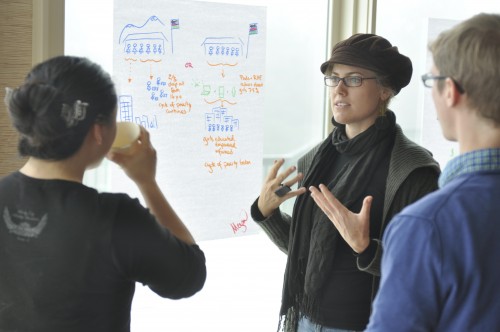Working with Kevin Starr and the PopTech Innovation Fellows on creating an 8 Word Mission Statement.
A concise description of the process is described in "Other Ways the Mulago Foundation Obsesses over Social Impact Measurement" from the GOOD Blog.
The post was created after Kevin's 2010 PopTech presentation on "Designing Impact".
See Kevin's PopTech talk here.





